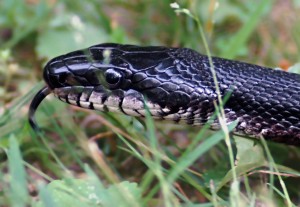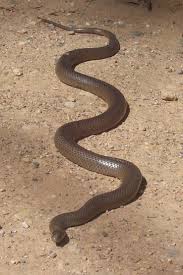Restricted and Controlled Classes of Animals
Under Ohio law, certain animals are subject to special laws, restrictions and regulations. This makes it extremely difficult to own, transport, sell, or purchase animals classified as “Dangerous Wild Animals” or “Restricted Snakes”.
Frequent research on this subject is important, as many of these restrictions didn’t come into effect until as recently as 2014. Certain kinds of organizations, such as licensed research laboratories or circuses, may be exempt from some of these regulations.
Restricted Snakes (as defined by law)
Section 935.01(L) of the Ohio Revised Code uses the term “Restricted Snake” to include the following species:
- Boomslang snakes
- Twig snakes
- Any of the following, if the snake is at least 12 feet long:
- Green Anacondas
- Yellow Anacondas
- Reticulated Pythons
- Indian Pythons
- Burmese Pythons
- North and South African Rock Pythons
- Amethystine Pythons
- Any snake that is a member of the following families:
- Atractaspididae
- Elapidae
- Viperidae
Required Permits for Restricted Snakes
Ohio law prohibits any person from owning a Restricted Snake unless they obtain a Restricted Snake Possession Permit from the Director of Agriculture. Applying for such a permit requires a great deal of care, as it must include a detailed plan of action if the snake ever escapes, proof of financial responsibility, and a written statement from a veterinarian agreeing to provide care for the snake (among other requirements).
Any owner of a Restricted Snake is prohibited from selling, trading, gifting, or propagating the snake unless he or she obtains a Restricted Snake Propagation Permit from the Director of Agriculture.
 Owning a Restricted Snake
Owning a Restricted Snake
Owners of Restricted Snakes are required by section 935.23 of the Ohio Revised Code to have access to antivenom specific to each species of snake owned. If there is no antivenom at the snake’s location, the owner must have a signed letter from the owner of a local hospital confirming that the hospital has the necessary antivenom on hand. Proof of antivenom access must be submitted to the county sheriff and to the chief law enforcement officer in the township or municipal corporation where each snake is located.
If a Restricted Snake bites someone, the snake’s owner is solely liable for all costs associated with treating the bite (this includes the cost of any antivenom or other medicines used during treatment).
Housing for Restricted Snakes
Any owner of a Restricted Snake is required by section 935.12 of the Ohio Revised Code to meet the following requirements:
-

Holland & Muirden, Attorneys at Law Provide for temperature regulation in the snake’s enclosure (as necessary to ensure the well-being of that species of snake);
- Provide non-injurious substrate (sand, newspaper, processed wood shavings, etc.) in the snake’s enclosure;
- Ensure that the snake’s enclosure is an appropriate length, height, and width for the body of the snake, and allows for as many snakes as it contains (see ORC 935.12 for details);
- Ensure that the snake’s enclosure is designed to effectively and safely contain the snake, and that its opening has a secure lock or latch.
Caring for Restricted Snakes
It is absolutely imperative for any owner of a Restricted Snake to thoroughly research the prescribed methods of care for each kind of animal in his or her possession, and to follow all guidelines set forth by the Director of Agriculture, as well as all rules set forth in the Federal Animal Welfare Act.

